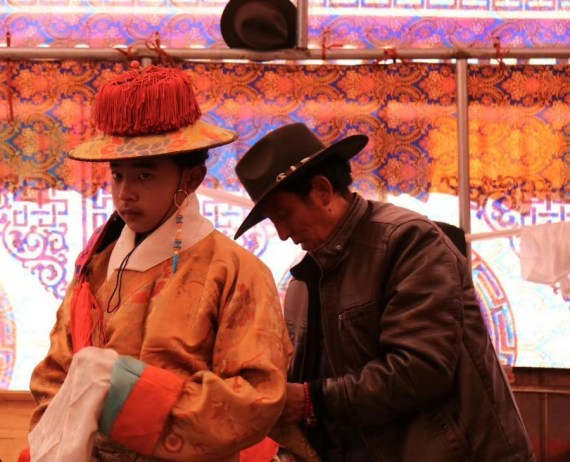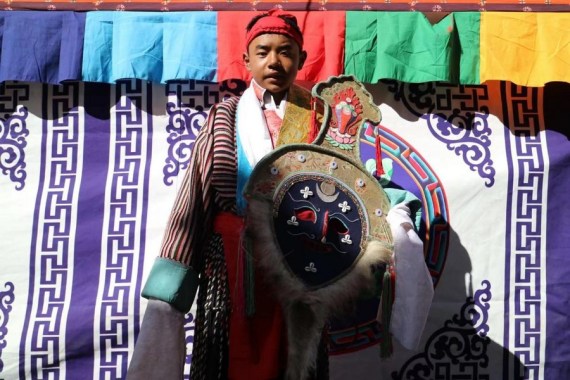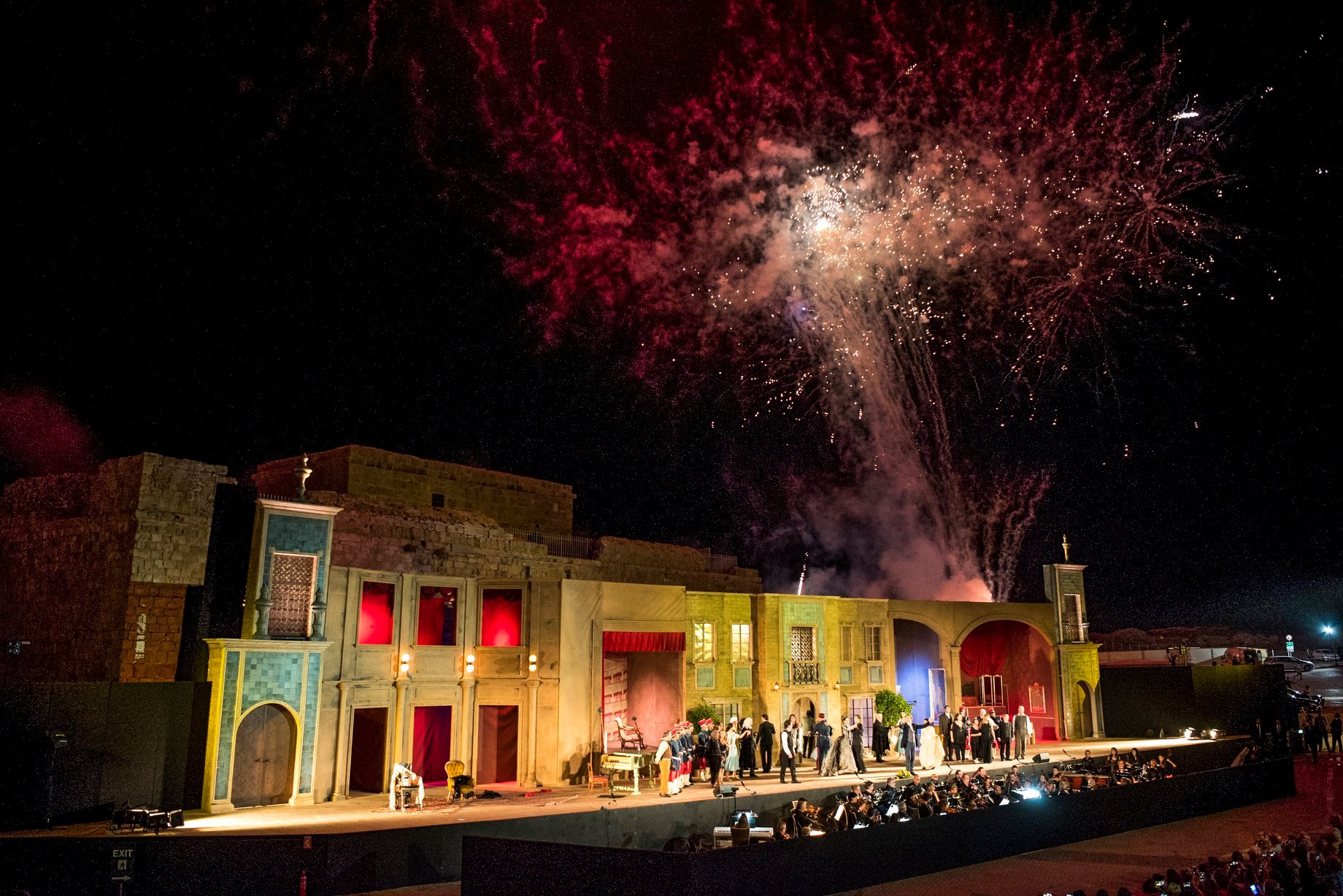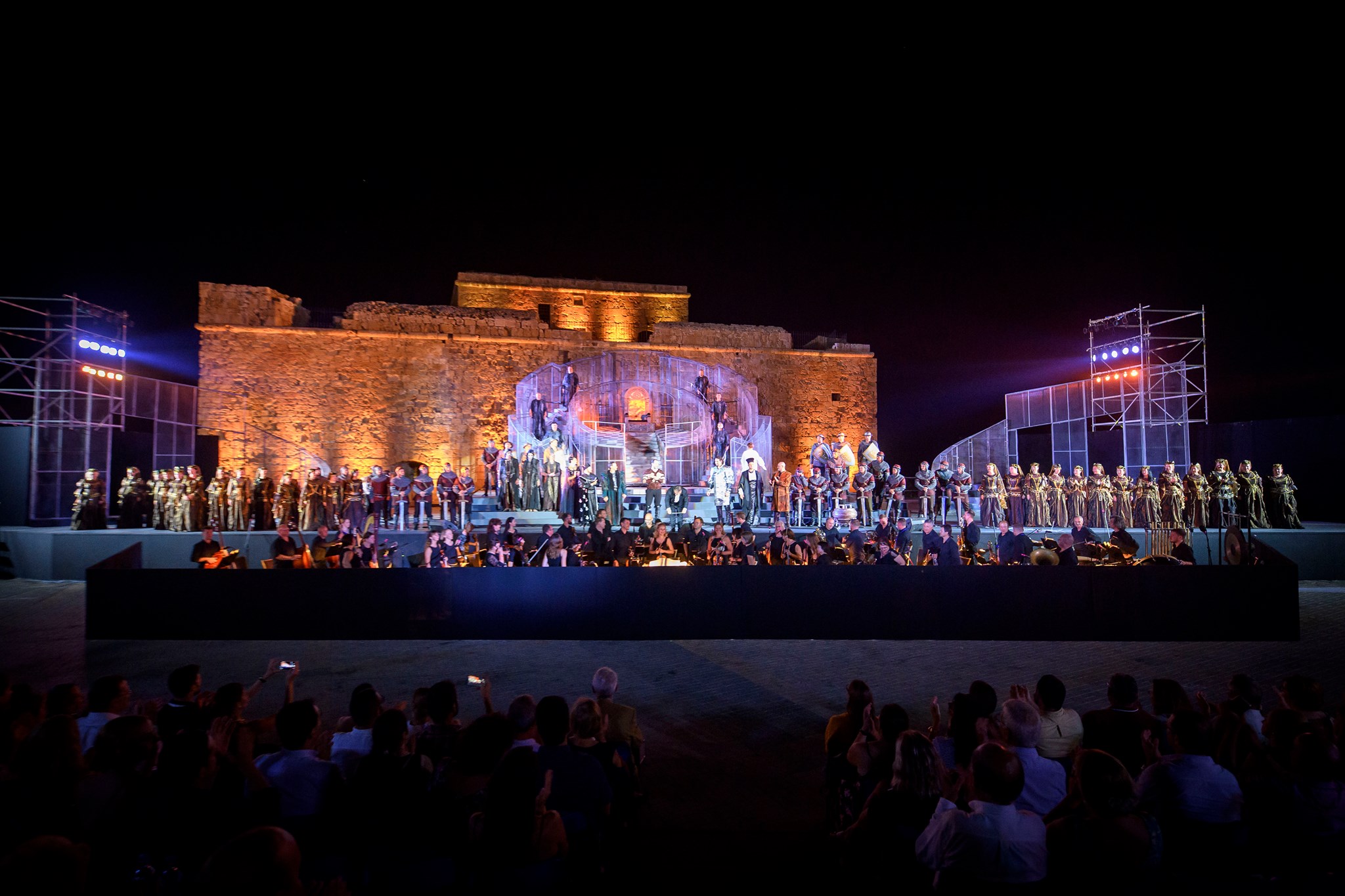Far apart, Cyprus and China are united in a growing interest in opera. KAREN TAYLOR looks at where both are expanding
With its often multiple people on stage and dramatic storylines, opera is a popular artform around the world. That is true in both Cyprus and China, and although its history dates back much further in the latter in both parts of the world it is a culture that is growing.
Centuries-old Tibetan opera is a living fossil of Tibetan culture in China’s Xizang, which has witnessed a renaissance as an increasing number of Tibetan youngsters learn this intangible cultural heritage.
In Cyprus, audiences have enjoyed opera performances for over 20 years, with the highlight being the Aphrodite festival due to return to Paphos this year. Although staged by overseas companies, these shows have seen Cypriot artists take part in chorus and secondary roles, bringing Cyprus culture to the world of opera.
Back in Xizang, the artform has a history dating back over 600 years, and 13-year-old Tenzin Donden spends over two hours every weekend perfecting it at the people’s art hall of the Xizang autonomous region in Lhasa.
“I have been studying traditional opera since I was six. I want to learn Tibetan opera well and become an outstanding Tibetan opera performer,” he says.

Tibetan opera blends talking, singing, acting, dancing and literature. It was included on the Unesco Representative list of Intangible Cultural Heritage of Humanity in 2009.
“Now, many young people enjoy Tibetan opera, which makes me feel very gratified,” says Tibetan opera teacher Phurjung, who has been involved with it for more than 40 years.
In 2005 an intangible cultural heritage protection project was initiated in Xizang, and one year later Tibetan opera was included on the first list of national-level intangible cultural heritage, three years before its recognition by Unesco. There are now over 150 part-time Tibetan opera troupes.
In Tashi Chodan, a community in Shannan City known for Tibetan opera the artform has spurred economic growth. In 2023, the community welcomed 16,000 visitors, generating over 1.85 million yuan (about $257,000) in tourism revenues.

“Currently our Tibetan opera troupe has more than 30 performers, 16 of whom are youngsters,” says inheritor of Tibetan opera Nyima Tsering. “In the future we will do our utmost to integrate the performance of Tibetan opera with tourism development.”
Integrating tourism with opera also saw the introduction of opera to Paphos, which held the Aphrodite Festival for 21 years between 1999 and 2019, while an announcement is expected soon on what will be staged later this year. The first opera performance was Aida presented by the Bolshoi Theatre of Moscow, following which performances included Zorba the Greek, Turandot, Madama Butterfly and The Barber of Seville, ending with Macbeth in 2019.
Last August mayor Phedonas Phedonos said “Paphos Aphrodite Festival returns to the cultural life of Paphos and Cyprus”.

One of the reasons the festival, which hinged on an opera performance at the castle, was introduced was to attract a different kind of tourist to the island, says its former artistic director Ayis Ioannides.
“It was also a very good opportunity to expose the Cypriot public to performances of a very high level. Some top international names in opera came to the island and this was a stimulus for our people to get more involved in opera singing,” he adds.
In 2014, a co-production was staged with an Italian company of Cosi Fan Tuti in which professional Cyprus singers were included in the chorus. Of the 24 members of the chorus, 16 were from Cyprus. “We did the same thing over the following years until 2019,” Ioannides says.
Right from the beginning, the staging of the opera gave Cypriot singers, of whom there are a surprising number working mostly abroad, to be selected for secondary roles. As in China, the artform is growing among Cypriots with several famous names originating on the island.
“The time is right now to start thinking about establishing a professional opera organisation in Cyprus,” Ioannides says. “Many Cypriots are studying singing overseas and even being employed. Many are at a level where they could be employed but they come back to Cyprus and there is no opportunity to perform, no chance to exercise this thing they have studied. This is something we need to look at very seriously as a state”.
For now though, the island can rely on Paphos bringing back its end of summer spectacle.
To see more, view video here
About Mirror of Culture
Mirror of Culture is a joint initiative of the Cyprus Mail and the Chinese embassy. It highlights the parallels between Cypriot and Chinese culture to set an example of acceptance, respect and
understanding among the various cultural communities on the island, recognising the fundamental importance of culture.
Culture is the universal language that transcends many barriers, including language and geography. The aim is to work with diverse cultural communities in Cyprus to share and promote our vibrant cultures to further bolster the bonds among all the people of Cyprus and celebrate the diversity of cultures in the world.
Furthermore, the initiative understands the importance of cultural preservation, which is an important way for us to transmit traditions and practices of the past to future generations.






Click here to change your cookie preferences